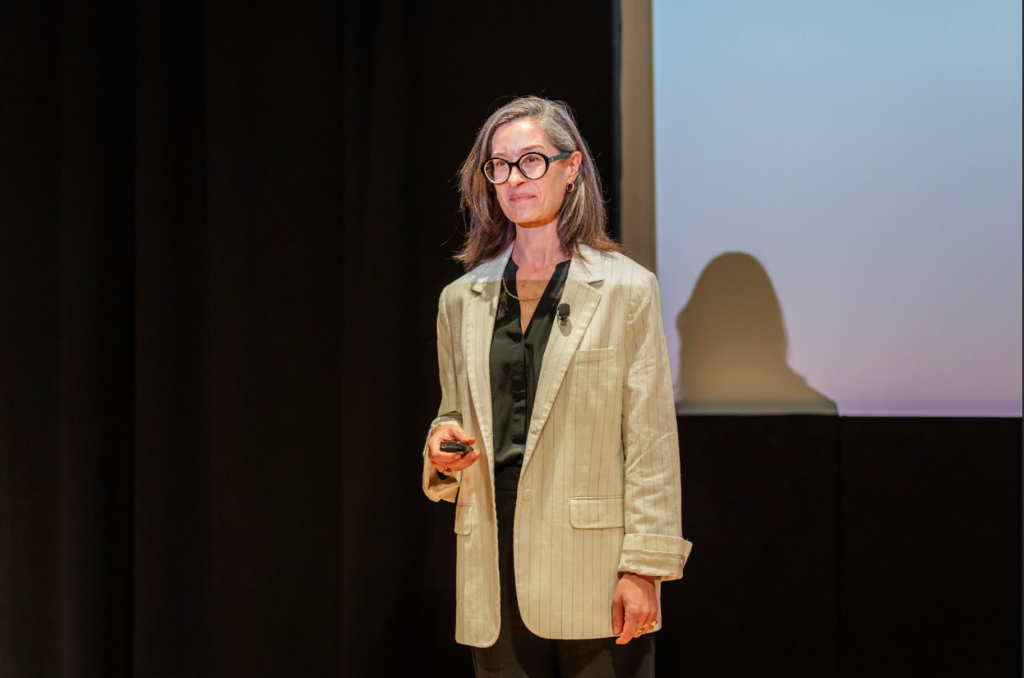Australia stands at the cusp of a transformative opportunity in women’s health innovation. With its renowned universal healthcare system, world-leading medical research, and growing recognition of the women’s health gap, the nation has all the ingredients for success.
Successful pilot initiatives, such as The UNSW Founders’ Women’s Health stream of the Health 10x program, have demonstrated this potential.
Is women’s health too niche?
Historically, women’s health has been critically underserved by a failure to look beyond women’s sexual and reproductive systems to adequately consider our “other” health needs. In almost every country globally, non-communicable diseases are the leading causes of death and disability in women. For instance, dementia is a leading cause of death in Australia, and arthritis is a major cause of disability in women globally. Sometimes it feels that society does not care about women’s health once a woman has given birth and understand how other (non-reproductive) conditions present in women and develop treatments for those.
The numbers speak for themselves: 25 per cent of women consider leaving the workplace due to menopause, with 10 per cent actually doing so. Nine out of 10 young women report pain during periods and one in four women of reproductive age experience heavy menstrual bleeding, leading to chronic fatigue and other conditions. Women report adverse events for drug treatment 52 per cent more frequently than men, and 66 per cent more frequently in the case of immunotherapy drugs.
And yet women’s health innovation receives a mere two per cent of healthcare venture funding and is still often called a “niche”. This disparity is both a health and economic crisis.
Is there an opportunity for Australia?
Women’s health presents both a well-defined business opportunity and a significant health gap allowing for a major impact. The World Economic Forum’s Global Alliance identified that addressing the women’s health gap could boost the global economy by $1 trillion annually, a 1.7 per cent increase in per capita GDP. Every dollar invested in women’s health unlocks three dollars in economic growth, making it a priority for both government and private sectors.
With a well-regarded healthcare system and research, an agile clinical trial system, and a $333 million government investment in women’s health research and services, alongside growing private investments, Australia has the infrastructure to lead globally.
A recent Senate inquiry into menopause highlighted the need for greater understanding and action. In April 2024, the Centre for Sex and Gender Equity in Health and Medical Research was established to ensure that sex and gender are routinely considered in health and medical research, policy, and practice, with a view to improving health outcomes and reducing health inequities for all Australians. Main Sequence Ventures, one of the largest VC funds, named women’s health as one of the priority investment areas in Health.
Recent advances in women’s health in Australia
Australia has seen many advances in women’s health, including:
- First successful uterus transplant surgery
- First in-vitro maturation (IVM): Innovating existing infertility treatments to offer a less invasive and cheaper alternative to in-vitro fertilisation (IVF), now implemented in clinical practice.
- Leading research breakthroughs: In endometriosis and vaginal microbiome research.
- Cervical cancer elimination: Australia is on track to become the first country in the world to eliminate cervical cancer.
Additionally, the first Women’s Health Accelerator program in APAC, delivered by UNSW Founders, The George Institute for Global Health, and Virtus Health, has successfully graduated four women’s health startups: 23 Strands, Neogenix Biosciences, Amelia Bio, and GonGlobal.


Yes, it is personal for me too
My mother has recently been diagnosed with osteoarthritis in both her hands, after years of complaining to doctors about her pain.
We know that women are more likely than men to develop osteoarthritis in the hands, and for most women, it develops after menopause. The latest studies show a link between the estrogen deficiency women experience during perimenopause and menopause and the development of hand OA.
The sad reality is that despite osteoarthritis’ huge impact on millions of women’s lives globally, the significant healthcare costs, and productivity loss, there is still a vast knowledge gap in understanding this disease in women and developing appropriate treatments that actually work for women.
Next for my mum are surgeries on both hands, so she can move her hands without pain and stop dropping things. Osteoarthritis is just one example where women are not provided with the healthcare they need due to systemic underinvestment in women’s health.
Australia has all the ingredients to lead in women’s health innovation. Now, it needs the boldness to act. We should call for urgent collaboration between government, healthcare providers and professionals, industry, startups, and investors to build an end-to-end platform for innovation. We have done it on a small scale at UNSW and proven its potential.
Closing the women’s health gap isn’t just a moral obligation—it’s a multi-billion dollar opportunity for economic growth and global leadership.


